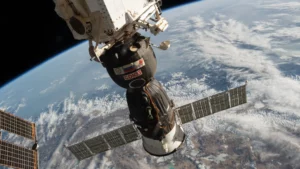Russia’s space sector has seen a dramatic fall, with its satellite launch orders decreasing by 90% since the 2022 Ukraine invasion.
This shift has elevated the United States as the top space power. Meanwhile, India and China are stepping up to fill the gap Russia has left behind.
Europe used to depend on Russia for satellite launches. Yet, after the post-Ukraine conflict, it moved away.
Russia’s launches dropped from 35 in 2021 to merely three in recent years.
In response, Sweden is setting up its own launch site, aiming for independence in space transport.

Russia faces more than just lost business. Its space missions have encountered technical failures, and Roscosmos, the national space agency, is dealing with severe financial issues.
On the other hand, India and China are making significant strides.
India’s cost-effective launches have tripled its international satellite deployments in 2023. China, with ambitions to be a space leader, is slowly increasing its launches.
Space’s role goes beyond defense, with SpaceX capturing the communications satellite market. This dominance reinforces the U.S.’s position as the space superpower.
The space industry’s growth signals more competition and a future demand for rockets. Around the world, countries are planning new launch sites.
Japan has two launch sites but lacks the capacity for more launches.
Yet, with the successful launch of the H3 rocket and initiatives by companies like Space One, Japan shows promise in space innovation.
The Japanese government aims to significantly increase its rocket launches by the mid-2030s.
This ambition underlines the need for supportive government policies to nurture the development of advanced rocket technology and successful space ventures.

